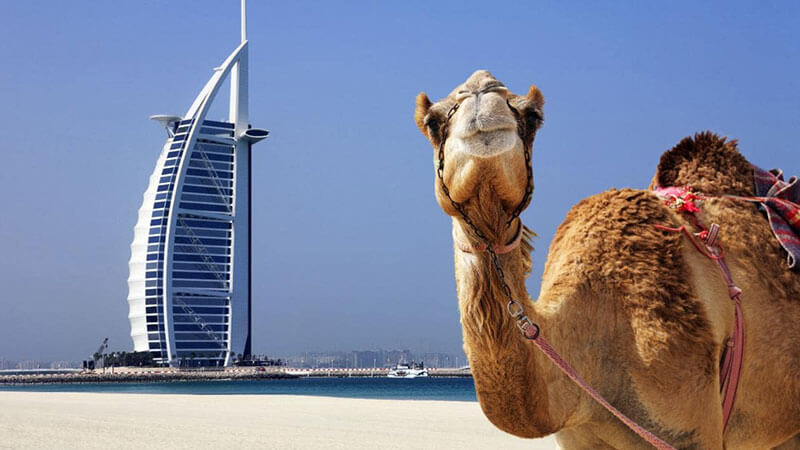Welcome to Dubai
Dubai is a city in the United Arab Emirates known for luxury shopping, ultramodern architecture and a lively nightlife scene. Burj Khalifa, an 830m-tall tower, dominates the skyscraper-filled skyline. At its foot lies Dubai Fountain, with jets and lights choreographed to music.
About
Dubai
Dubai has emerged as a global city and business hub of the Middle East.It is also a major transport hub for passengers and cargo. By the 1960s Dubai's economy was based on revenues from trade and, to a smaller extent, oil exploration concessions, but oil was not discovered until 1966. Oil revenue first started to flow in 1969.Dubai's oil revenue helped accelerate the early development of the city, but its reserves are limited and production levels are low: today, less than 5% of the emirate's revenue comes from oil.The emirate's Western-style model of business drives its economy with the main revenues now coming from tourism, aviation, real estate, and financial services.Dubai has recently attracted world attention through many innovative large construction projects and sports. events.
Dubai has emerged as a global city and business hub of the Middle East.It is also a major transport hub for passengers and cargo. By the 1960s Dubai's economy was based on revenues from trade and, to a smaller extent, oil exploration concessions, but oil was not discovered until 1966. Oil revenue first started to flow in 1969.Dubai's oil revenue helped accelerate the early development of the city, but its reserves are limited and production levels are low: today, less than 5% of the emirate's revenue comes from oil.The emirate's Western-style model of business drives its economy with the main revenues now coming from tourism, aviation, real estate, and financial services.Dubai has recently attracted world attention through many innovative large construction projects and sports. events.

Some 800 members of the Bani Yas tribe, led by the Maktoum Family, settled at the mouth of the creek in 1833. The creek was a natural harbour and Dubai soon became a center for the fishing, pearling and sea trade. By the turn of the 20th century Dubai was a successful port. The souk (Arabic for market) on the Deira side of the creek was the largest on the coast with 350 shops and a steady throng of visitors and businessmen. By the 1930s Dubai's population was nearly 20,000, a quarter of whom were expatriates. In the 1950s the creek began to silt, a result perhaps of the increasing number of ships that used it. The late Ruler of Dubai, His Highness Sheikh Rashid bin Saeed Al Maktoum, decided to have the waterway dredged. It was an ambitious, costly, and visionary project. The move resulted in increased volumes of cargo handling in Dubai. Ultimately it strengthened Dubai's position as a major trading and re-export hub.

Dubai Desert Classic:This is the most popular golfing event in the UAE. Many of the world's leading swingers return every year for a chance to play for the generous prize money. Dubai International Jazz Festival:This annual festival is held at Dubai Media City and appeals to many tourists who have enjoyed the engaging line ups in the past and the warm friendly atmosphere. Dubai World Cup:Every year Dubai is home to the world's richest horse race, with a US$10 million dollar prize fund! Amidst the presence of the world's best horses, jockeys and trainers, the action takes place at the Nad Al Sheba Racecourse, where state-of-the-art facilities and a superb track provide race goers with a unique and atmospheric venue at the city's largest social event.

Culture in Dubai is rooted in Islamic traditions that form UAE National's lifestyles. It is highly important that when tourists visit Dubai they must respect and behave suitably, as the minority group of Emiratis are very protective over their culture and traditions. Dubai is famously known as the entertainment capital of the Middle East which attracts many party lovers from all over the world, especially those who are wealthy enough to splash out on the most expensive bars and clubs in the city. With Dubai promoting such an image, it still forbids the nationals that practice Islam to indulge in any of the entertaining services offered. In that respect these services are often located in the more touristy areas rather than in residential parts. Alcohol is not forbidden in Dubai, as long as it is confined within an area like a hotel, bar or nightclub. Residents are free to drink in their own homes as long as they have an alcohol licence issued by the municipality.
